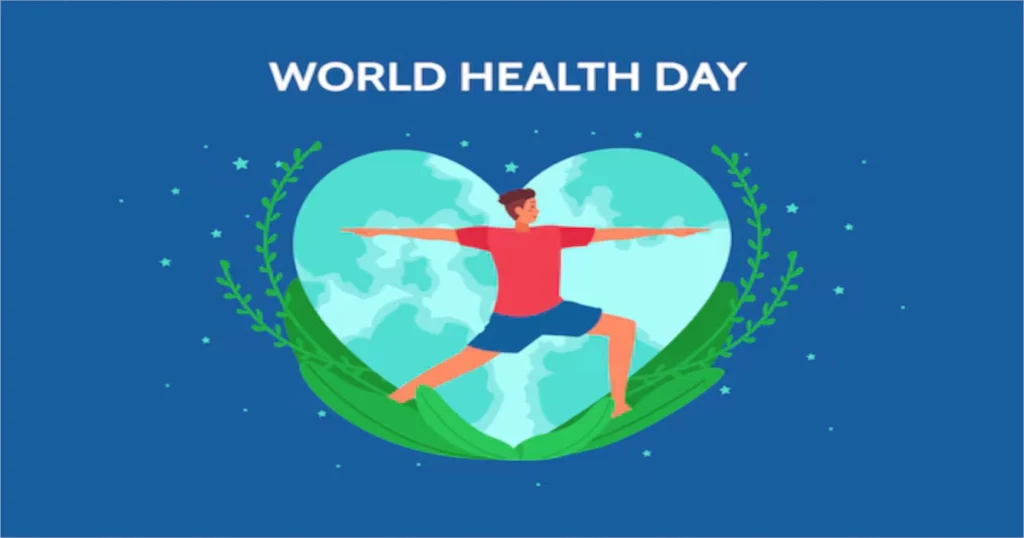Article Summary
Health is a human right. It’s a fundamental principle that ensures every individual has access to the resources and care needed to live a healthy life. This article explores the significance of health as a human right, its historical context, and why it’s crucial for society to recognize and protect this right. It covers global health disparities, legal frameworks supporting health rights, and how governments can address health inequalities. By exploring the intersection of health and human rights, the article advocates for policies and systems that prioritize accessibility, equity, and justice in healthcare. It emphasizes the responsibility of nations to ensure every person enjoys their right to good health.
Introduction: Health is a Human Right
Health is a human right. This principle has been widely recognized around the world, but it is still far from being fully realized for many people. From access to clean water to life-saving medications, every person deserves the ability to achieve and maintain good health. The term “health is a human right” is not just a lofty ideal; it is backed by international agreements, such as the Universal Declaration of Human Rights, which lays down the foundation for healthcare systems worldwide. In this article, we will explore why health is a fundamental human right and how society can ensure this right is upheld. Let’s understand how governments, institutions, and individuals can contribute to the realization of this basic human right.
The Foundation of Health as a Human Right
Health has always been a critical aspect of human life. The idea that health is a human right first emerged in the 20th century with the formation of the United Nations. After the horrors of World War II, the global community sought to define human dignity and establish fundamental rights for all. Health was recognized as an essential component of this dignity.
The Universal Declaration of Human Rights and Health
The Universal Declaration of Human Rights, adopted by the United Nations in 1948, laid the groundwork for recognizing health as a fundamental human right. Article 25 of the declaration states that everyone has the right to a standard of living adequate for their health and well-being, including food, clothing, housing, medical care, and necessary social services. This provision set a global precedent for ensuring that access to health care is not a privilege but a right for all individuals, regardless of their circumstances.
World Health Organization (WHO) and Health Rights
In 1946, the World Health Organization (WHO) was founded with the mission to ensure the highest attainable level of health for all people. WHO has consistently argued that health is a fundamental human right, not a commodity that only those with resources can access. Over time, WHO has worked towards global health policies that aim to make health services accessible to all, particularly in low- and middle-income countries.
Global Disparities in Health Access
While health is a universal right, access to health care remains unequal across the globe. Millions of people, particularly in developing countries, do not have access to basic health services.
Health Inequities: A Global Challenge
Health inequities exist due to various factors, such as economic status, geography, and social determinants. Those living in poverty, rural areas, or conflict zones often face significant barriers to receiving proper healthcare. For example, maternal and child mortality rates are significantly higher in low-income countries, where access to prenatal care and vaccinations is limited. Even in developed nations like the United States, minority groups, such as Black and Hispanic populations, experience worse health outcomes due to structural inequalities and limited access to quality care.
Barriers to Healthcare Access
There are several barriers that prevent individuals from accessing healthcare, including:
- Cost: In many parts of the world, people cannot afford the necessary healthcare services. High out-of-pocket costs for medical treatment prevent them from seeking care.
- Geographic Location: People living in rural or remote areas often face challenges in accessing health facilities. In some cases, these areas lack essential infrastructure or medical professionals.
- Cultural and Language Barriers: Migrants and minority groups may face difficulties in accessing healthcare due to language differences or cultural attitudes toward health.
The world’s efforts to address these issues are still far from perfect, and inequality remains a challenge.
The Legal Right to Health
While health is an inherent right, the legal framework surrounding it plays a significant role in ensuring access. International laws and national constitutions reflect the importance of health rights and aim to secure healthcare for everyone.
International Human Rights Law and Health
International law provides strong support for health as a human right. In addition to the Universal Declaration of Human Rights, several key international treaties emphasize the right to health. The International Covenant on Economic, Social, and Cultural Rights (ICESCR) was adopted in 1966, which specifically recognizes the right to health as an integral part of the right to an adequate standard of living.
The Role of National Governments
Governments have a legal obligation to fulfill the right to health for all citizens. This includes the provision of essential health services, regulation of health standards, and ensuring that the health system is free from discrimination. Several countries have incorporated the right to health into their constitutions, making it the law of the land. Countries like the United Kingdom, Canada, and Germany have healthcare systems that strive to provide health care as a right to their citizens.
Challenges to Ensuring Health as a Human Right
Despite the widespread recognition of health as a human right, several challenges persist in ensuring that this right is fully realized. Governments and international organizations face numerous obstacles in making health care truly accessible to all.
Lack of Funding for Healthcare Systems
One of the biggest challenges in ensuring health as a human right is securing adequate funding for healthcare systems. Many countries, especially in the developing world, face financial constraints that limit their ability to build and maintain health infrastructure. Without proper investment in hospitals, clinics, medical supplies, and healthcare professionals, these systems cannot meet the needs of their populations.
Political and Economic Factors
Health systems are often influenced by political decisions and economic factors. In some countries, political instability or corruption has prevented the allocation of resources to the healthcare sector. In others, economic conditions may prioritize other sectors over healthcare, leading to insufficient funding and inadequate services.
Health Inequality and Discrimination
Health inequality remains a significant challenge, especially for marginalized groups. Discrimination based on race, gender, disability, or socioeconomic status can impact access to healthcare services. In some cases, the healthcare system itself perpetuates these inequalities by providing lower-quality services to certain groups.
Policy Recommendations for Achieving Health as a Human Right
To make health a true human right, governments, international organizations, and societies need to take deliberate actions. Several policy recommendations can help achieve this goal.
Universal Health Coverage (UHC)
Universal Health Coverage is a critical policy for ensuring that all individuals can access healthcare services without suffering financial hardship. By investing in UHC, governments can work toward removing barriers to care, such as cost and access. Countries like Japan and the United Kingdom have successfully implemented UHC, providing quality health services to all citizens, regardless of their financial status.
Health System Strengthening
Governments need to invest in strengthening health systems. This includes building healthcare infrastructure, training health professionals, and ensuring that essential medicines are available. Strengthening health systems allows for better response to emergencies, disease outbreaks, and long-term health challenges.
Addressing Social Determinants of Health
To ensure that health is a human right, it is important to address the social determinants of health. These include factors such as education, income, housing, and access to clean water. Governments should adopt policies that aim to reduce poverty, improve education, and ensure access to safe environments. By addressing these underlying factors, societies can improve overall health outcomes and ensure equitable access to healthcare.
The Role of Individuals in Promoting Health Rights
While governments and organizations play a central role in ensuring health as a human right, individuals also have a role to play in advocating for better health systems. Awareness and advocacy can help create a more inclusive healthcare environment.
Promoting Awareness of Health Rights
Raising awareness about the right to health is essential in encouraging individuals to advocate for better healthcare systems. People need to understand their rights and demand better services. This can be done through community-based initiatives, social media campaigns, and educational programs.
Community Health Initiatives
Local communities can organize initiatives to improve public health. These can include vaccination campaigns, health education programs, and support for those in need. By working together, communities can overcome barriers to healthcare access and promote health as a fundamental right.
Conclusion
Health is a human right, but many challenges remain in ensuring that this right is realized for everyone. Addressing global health disparities, strengthening healthcare systems, and advocating for policies that promote universal health coverage are crucial steps toward ensuring that every individual, regardless of their background, can access the care they need. Health is not a luxury; it is a right, and it is the responsibility of governments, organizations, and individuals to ensure that this right is protected and upheld.
Frequently Asked Questions (FAQs)
Why is health considered a basic human right?
Health is a fundamental aspect of human dignity and well-being. It allows individuals to live productive and fulfilling lives, free from suffering. The recognition of health as a human right ensures that everyone has access to the resources and care they need for a healthy life. This principle is embedded in global agreements like the Universal Declaration of Human Rights and the International Covenant on Economic, Social, and Cultural Rights.
How do global disparities impact access to healthcare?
Global disparities in healthcare arise due to various factors, including economic inequality, lack of infrastructure, and social determinants like education and housing. People living in low-income or remote areas face significant barriers in accessing essential health services. These inequities result in higher rates of preventable diseases, maternal and child mortality, and overall poor health outcomes, particularly in developing countries.
What are the key barriers to healthcare access worldwide?
Several barriers prevent people from accessing healthcare, such as high medical costs, lack of transportation to healthcare facilities, and insufficient healthcare infrastructure. In some regions, cultural and language differences further complicate access. Financial constraints also play a major role, especially in countries with limited resources for public health programs. Overcoming these challenges requires coordinated efforts from governments, NGOs, and local communities.
How can governments ensure healthcare as a right for all?
Governments can ensure healthcare as a universal right by implementing policies such as Universal Health Coverage (UHC). UHC aims to provide accessible and affordable healthcare services to all citizens without financial hardship. Investments in healthcare infrastructure, training healthcare workers, and reducing inequalities in the healthcare system are essential to making health accessible to everyone.
What is Universal Health Coverage (UHC)?
Universal Health Coverage (UHC) is a policy framework that ensures everyone can access the healthcare services they need, without facing financial barriers. UHC includes services ranging from preventive care to treatment for severe conditions. By investing in UHC, governments can help reduce disparities in healthcare access and improve the overall health of their populations.
How can individuals contribute to promoting healthcare rights?
Individuals can play an active role in promoting healthcare rights by raising awareness, advocating for better healthcare policies, and participating in community health initiatives. Educating others about the importance of health as a right can empower communities to demand better services. Local health campaigns, vaccination drives, and volunteer work are some ways people can contribute to improving healthcare access and equity.







